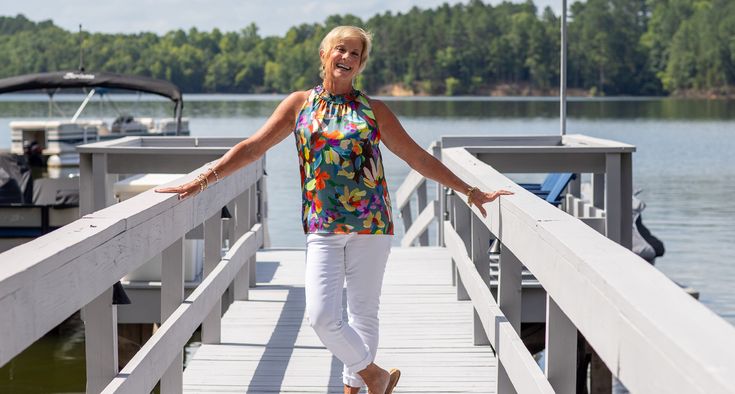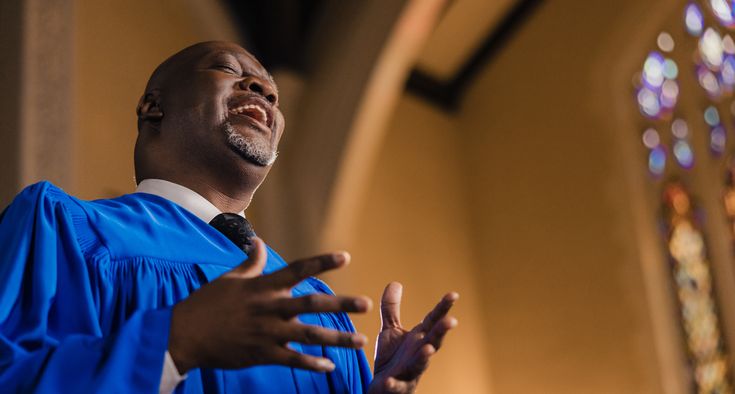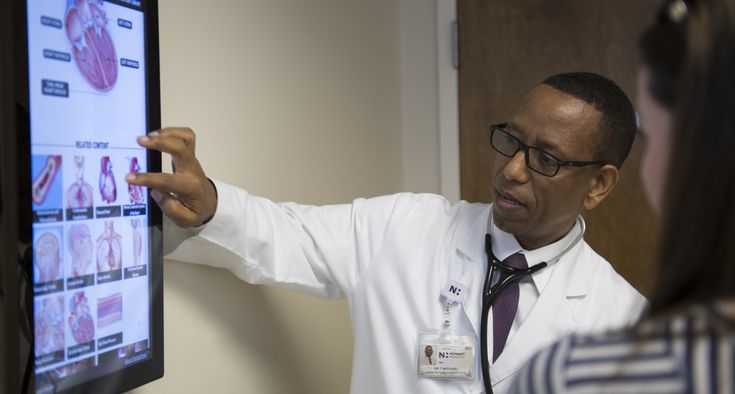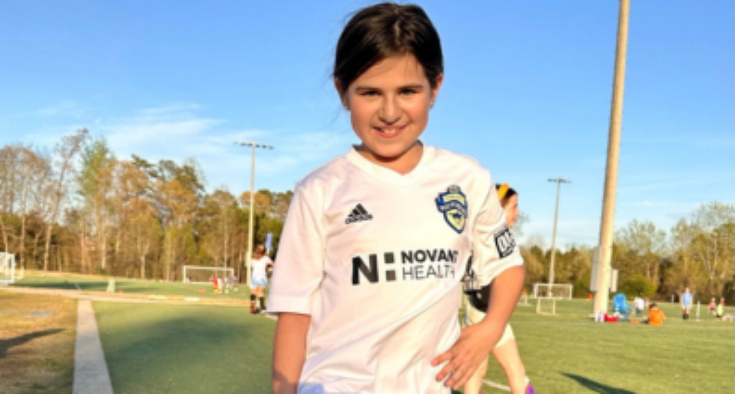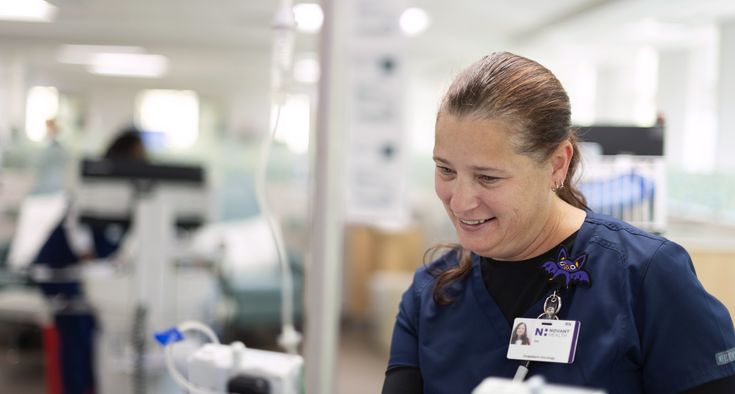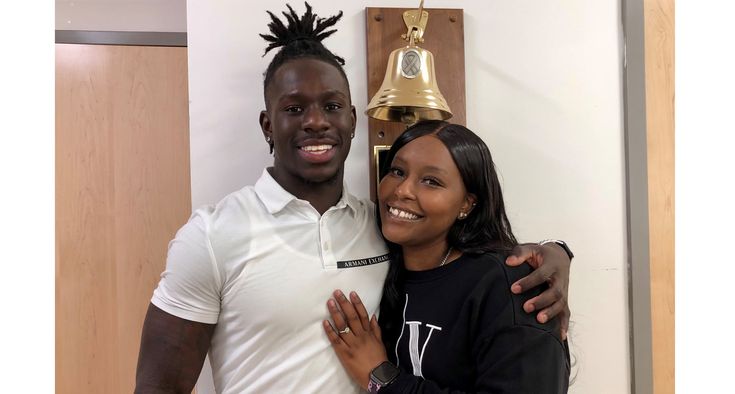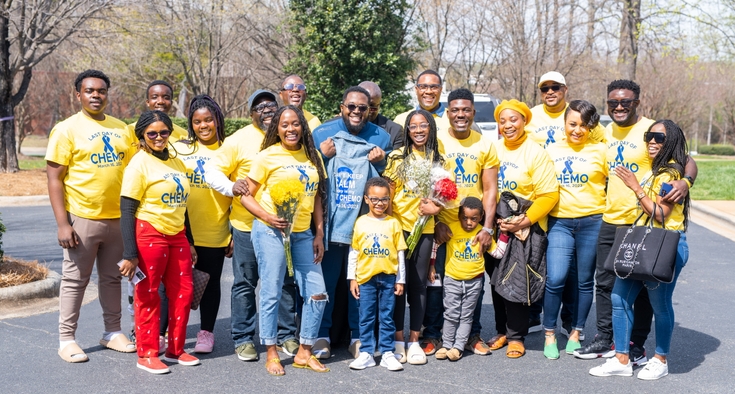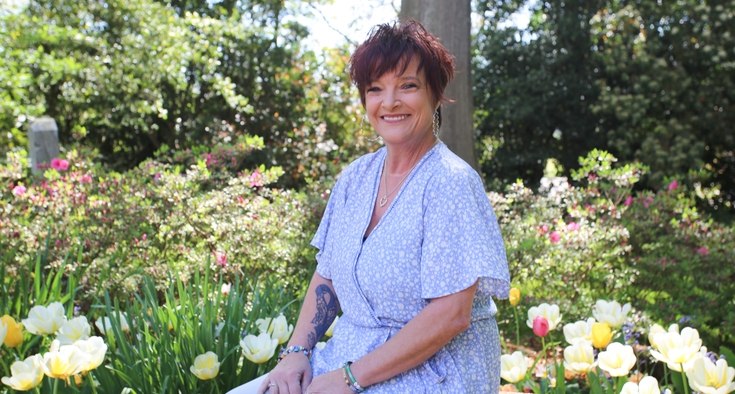After separate cancers in her ovaries and uterus led Mary Willis Page to get a blood test that uncovered a genetic risk for other cancers, she wore herself out going on the offensive.
Every six to 12 months, she has a blood test to check for signs that her cancers have returned. Every year, she has a colonoscopy — and more than two-thirds of the time, the doctor has snipped out polyps that could become cancerous.
Every other year, Page has an endoscopy to look for tumors in her GI tract. She makes regular visits to a lab for specialized screening for urinary cancers and semi-annual visits to the dermatologist, who over the years has discovered and removed three squamous cell skin cancers.
"I spent a very long time trying to manage it myself and Googling what I was supposed to do," the 61-year-old Salisbury psychologist recalled.
Finally, at a checkup with women's cancer specialist Dr. Matt McDonald, who successfully treated her early-stage ovarian and uterine cancers in 2012, she heaved a weary sigh. The years-long burden of trying to prevent more than a dozen types of cancer associated with her genetic disorder, called Lynch syndrome, was wearing her down.
"You're my GYN, and you're really good at that," Page told McDonald, a gynecological oncologist at Novant Health Agnes B. and Edward I. Weisiger Cancer Institute in Charlotte. "But I have all these other cancers to worry about. I need a point guard — someone who knows how to call all the plays for me."
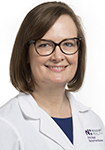
Enter Amy Bush, a nurse practitioner at the Novant Health Cancer Institute – Mooresville, captain of Page's anti-cancer offensive.
She’s just one of many team members at the Novant Health Cancer institute who provide expert, compassionate and comprehensive services to help at-risk patients stay on top of the confusing, sometimes grueling task of screenings and related efforts.
Supportive care for your cancer journey.
Supporting patients
Bush's job is assessing patients' risk for cancer and then counseling them on steps to prevent it.
Page has an MLH1 gene mutation that puts her at risk for cancers of the colon, stomach, urinary organs, pancreas, liver, gallbladder, skin and brain. That means she needs frequent screening aimed at heading off disease or detecting it in its early stages when it's most treatable.
For others, including relatives concerned whether they have an inherited risk, it may mean getting a blood test to see if they have gene markers for cancer and taking preventive action if they do. The test currently looks for 77 known markers.
Concerned about your cancer risk?
Ask your health care team for a referral to Novant Health cancer genetic counseling and/or the cancer risk clinic. To make an appointment, call:
- Charlotte- 980-302-6270
- Winston-Salem- 336-277-6000
- Wilmington- 910-667-4972
For all her patients, Bush keeps abreast of the latest recommendations on screening and cancer prevention, so they don't have to. In some cases, she sets up appointments for tests that patients need and makes those who are eligible aware of opportunities to enlist in clinical trials.
She also connects patients to community resources like NothingPink, which supports individuals who are at high risk for hereditary breast and gynecological cancers.
"It can really be overwhelming when someone is faced with a gene mutation, even if they don't have cancer," Bush said. "Just going through all of that screening and surveillance can be overwhelming. So we really try to support the patients in that way, too."
Ongoing follow-up for at-risk patients is important, she explained, because their personal and family history can change over time. Plus, risk rises with age. Screening recommendations change as well.
Until recently, for example, the American Cancer Society recommended people with an average risk for colorectal cancer begin screening at age 50. With these cancers on the rise among younger Americans, the current advice is to start at 45. Many people with a known genetic risk start even sooner. Based on family history, Page started her screenings at age 35.
Bush relies on guidelines from the National Comprehensive Cancer Network and an online calculator to gauge a patient's disease risk by age, gene variant, prior cancer history. But that’s not all. Things like a history of tobacco and alcohol use, exposure to environmental toxins, and even BMI, a measure of body fat based on height and weight, also factor in – being overweight or obese increases risk for 13 kinds of cancer.
Once it’s all been weighed, "we present patients with their screening and surveillance plan," Bush said. "We usually see them at least once a year to make sure that we're staying on target with their plan."
Have a gene mutation?
Amy Bush uses an online tool, Ask2Me | All Syndromes Known to Man Evaluator, to help gauge patients' cancer risk. Patients can use it too. Enter the name of a known gene mutation, your gender, age and prior cancer history to gauge your current odds of associated cancers.
Remember: A mutation only means that the risk of getting cancer is higher, not that it's a sure thing.
Empowering patients
For patients with an identified risk, the plan will outline preventive steps. These run the gamut from dietary changes, exercise regimens and hormone therapy to risk-reducing surgeries such as prophylactic mastectomies or hysterectomies before there’s even an indication of cancer.
"I'm seeing a lot of patients who already have cancer, so it is a nice thing to be able to see well patients and help prevent cancer," she said. "It really puts the power in patients' hands."
Working with Novant Health's genetic counselors, Bush also helps parents, children and siblings of cancer patients gauge their own risk.
Before they get tested, though, they'll be counseled about a potential risk they might otherwise overlook: If a mutation is found, Bush said, it may prevent them from getting life insurance or disability coverage.
Many of Bush’s patients are referred from the genetic counselors. Like Page, whose mother and grandmother both had cancer when they died, many at the high-risk clinic have a history of the disease on one side of the family.
"That's a big red flag right there," Bush said. "A lot of people don't know that having had more than 10 colon polyps could put them at higher risk too. There are certain families who have had certain types of cancer — ovarian, pancreatic, metastatic prostate cancer or male breast cancer — that have a personal risk." Anyone of Ashkenazi Jewish ancestry also has a heightened cancer risk.
Researchers are learning more all the time about the risks associated with more recently identified gene mutations, Bush said. "Some just don't have any guidelines yet, so there's really nothing for patients to do," she said, "But it is something for them to be aware of."
For her part, Page describes knowledge as a potent antidote to worry. She is relieved that neither her son nor her daughter inherited the flawed gene. Her sister was clear, too. “I won the genetic lottery!” she said with a smile.
Page smiles, too, when she reflects on cancer specialist McDonald's reassuring demeanor and his responsiveness to her concerns about managing her risk, which put Amy Bush on the front line of her anti-cancer offensive.
The two women recently met for their annual review. As always, Page came away with an action plan based on the latest assessment of her personal cancer risk.
“I go for her knowledge and my peace of mind,” she said later. “Cancer may happen, but I’m going to be on it – and I know Amy’s going to be on it.”

Lessons for life
Here are five ways cancer changed Mary Willis Page’s life:
- “My faith has gotten stronger."
- “I try to surround myself with positive people.”
- “I recognize the beauty and joy in living – and doing it now – telling people you love them, giving compliments, recognizing positive attributes, giving people grace.”
- “I don’t put off things on my bucket list.”
- “I focus on what’s important, and for me that’s my family and my faith.”





